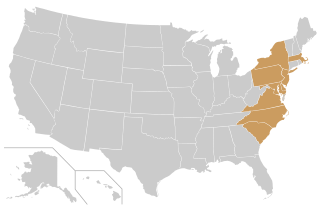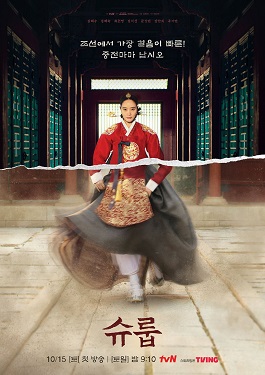Related Research Articles

The division of Korea began on August 15, 1945 when the official announcement of the surrender of Japan was released, thus ending the Pacific Theater of World War II. During the war, the Allied leaders had already been considering the question of Korea's future following Japan's eventual surrender in the war. The leaders reached an understanding that Korea would be liberated from Japan but would be placed under an international trusteeship until the Koreans would be deemed ready for self-rule. In the last days of the war, the United States proposed dividing the Korean peninsula into two occupation zones with the 38th parallel as the dividing line. The Soviets accepted their proposal and agreed to divide Korea.

From 1910 to 1945, Korea was ruled as a part of the Empire of Japan under the name Chōsen, the Japanese reading of Joseon.
Sangokujin is a Japanese term referring to the various former colonial subjects of the Empire of Japan in the aftermath of World War II. This term particularly applied to Koreans and Taiwanese people, although it also sometimes was used for Ryukyuan people. The term is now generally considered antiquated and offensive.

The term "Cinema of Korea" encompasses the motion picture industries of North and South Korea. As with all aspects of Korean life during the past century, the film industry has often been at the mercy of political events, from the late Joseon dynasty to the Korean War to domestic governmental interference. While both countries have relatively robust film industries today, only South Korean films have achieved wide international acclaim. North Korean films tend to portray their communist or revolutionary themes.

The Coastal Athletic Association (CAA), formerly the ECAC South Conference and the Colonial Athletic Association, is a collegiate athletic conference affiliated with the NCAA's Division I whose full members are located in East Coast states, from Massachusetts to South Carolina. Most of its members are public universities, and the conference is headquartered in Richmond. The CAA was historically a Southern conference until the addition of four schools in the Northeastern United States after the turn of the 21st century, which added geographic balance to the conference.
First-wave feminism was a period of feminist activity and thought that occurred during the 19th and early 20th century throughout the Western world. It focused on legal issues, primarily on securing women's right to vote. The term is often used synonymously with the kind of feminism espoused by the liberal women's rights movement with roots in the first wave, with organizations such as the International Alliance of Women and its affiliates. This feminist movement still focuses on equality from a mainly legal perspective.

Japan had an official slave system from the Yamato period until Toyotomi Hideyoshi abolished it in 1590. Afterwards, the Japanese government facilitated the use of "comfort women" as sex slaves from 1932 to 1945. Prisoners of war captured by Japanese imperial forces were also used as slaves during the same period.

The United States Army Military Government in Korea (USAMGIK) was the official ruling body of the southern half of the Korean Peninsula from 8 September 1945 to 15 August 1948.

The Cornell University Press is the university press of Cornell University, an Ivy League university in Ithaca, New York. It is currently housed in Sage House, the former residence of Henry William Sage. It was first established in 1869, making it the first university publishing enterprise in the United States, but was inactive from 1884 to 1930.

Partus sequitur ventrem was a legal doctrine passed in colonial Virginia in 1662 and other English crown colonies in the Americas which defined the legal status of children born there; the doctrine mandated that children of enslaved mothers would inherit the legal status of their mothers. As such, children of enslaved women would be born into slavery. The legal doctrine of partus sequitur ventrem was derived from Roman civil law, specifically the portions concerning slavery and personal property (chattels), as well as the common law of personal property; analogous legislation existed in other civilizations including Medieval Egypt in Africa and Korea in Asia.

In Hispanic America, criollo is a term used originally to describe people of full Spanish descent born in the viceroyalties. In different Latin American countries, the word has come to have different meanings, mostly referring to the local-born majority. Historically, they have been misportrayed as a social class in the hierarchy of the overseas colonies established by Spain beginning in the 16th century, especially in Hispanic America. They were locally-born people–almost always of Spanish ancestry, but also sometimes of other European ethnic backgrounds.

Anti-Japanese sentiment in Korean society has its roots in historic, cultural, and nationalistic sentiments.

The Ministry of Colonial Affairs was a cabinet-level government ministry of the Empire of Japan from 1929 to 1942.

Anarchism in Korea dates back to the Korean independence movement in Korea under Japanese rule (1910-1945). Korean anarchists federated across their end of the continent, including forming groups on the Japanese mainland and in Manchuria, but their efforts were perforated by regional and world wars.

Architectural revivalism is the use of elements that echo the style of a previous architectural era that have or had fallen into disuse or abeyance between their heyday and period of revival. Revivalism, in a narrower sense, refers to the period of and movement within Western architectural history during which a succession of antecedent and reminiscent styles were taken to by architects, roughly from the Middle of the 18th century, and which was itself succeeded by Modernism around Late 19th Century and Early 20th Century,. Notable revival styles include Neoclassical architecture, and Gothic Revival. Revivalism is related to historicism.
Africana philosophy is the work of philosophers of African descent and others whose work deals with the subject matter of the African diaspora. The name does not refer to a particular philosophy, philosophical system, method, or tradition. Rather, Africana philosophy is a third-order, metaphilosophical, umbrella-concept used to bring organizing oversight to various efforts of philosophizing. Africana philosophy is a part of and developed within the field of Africana studies.

The territorial conquests of the Japanese Empire in the Western Pacific Ocean and East Asia began in 1895 with its victory over Qing China in the First Sino-Japanese War. Subsequent victories over the Russian Empire and the German Empire expanded Japanese rule to Taiwan, Korea, Micronesia, southern Sakhalin, several concessions in China, and the South Manchuria Railway. In 1931, Japan invaded Manchuria, resulting in the establishment of the puppet state of Manchukuo the following year; thereafter, Japan adopted a policy of founding and supporting puppet states in conquered regions. These conquered territories became the basis for the Greater East Asia Co-Prosperity Sphere in 1940.
Anarchism in Hong Kong emerged as part of the Chinese anarchist movement, when many anarchists sought refuge from the Qing Empire in the territory. It grew alongside the Chinese revolutionary movement, before the territory again became a safe haven for anarchists, following the Communist victory in the Chinese Civil War. Since then anarchists have formed a part of the Hong Kong opposition movement, first to British colonial rule and then to the rising authoritarianism of the Government of Hong Kong.
Anarchism in Taiwan first developed out of the anti-imperialist resistance to the Empire of Japan, when a number of young Taiwanese nationalists were exposed to anarchism during their studies abroad. Influenced by the anarchist movements in China and Japan, and in close cooperation with a number of Korean anarchists, the Taiwanese anarchist movement reached its height during the 1920s, before being suppressed by 1931.

Under the Queen's Umbrella is a 2022 South Korean television series starring Kim Hye-soo, Kim Hae-sook, and Choi Won-young. It aired on tvN from October 15 to December 4, 2022, every Saturday and Sunday at 21:10 (KST). It is also available for streaming on Netflix in selected regions.
References
- ↑ Dunwalke, Erez Manela (2007). The Wilsonian Moment: Self-Determination And The International Origins. Oxford University Press. ISBN 9780198039150.
- ↑ Pye, Lucian W. (January–February 2002). "Under The Black Umbrella: Voices From Colonial Korea". Foreign Affairs. Retrieved 4 June 2013.